Election is Australia’s chance to get rich from AI and become a ‘global leader’
Australia can catapult itself towards the front of the global AI race if industry and government collaborate on ‘four key opportunities’, says the country’s most value group of data centres.
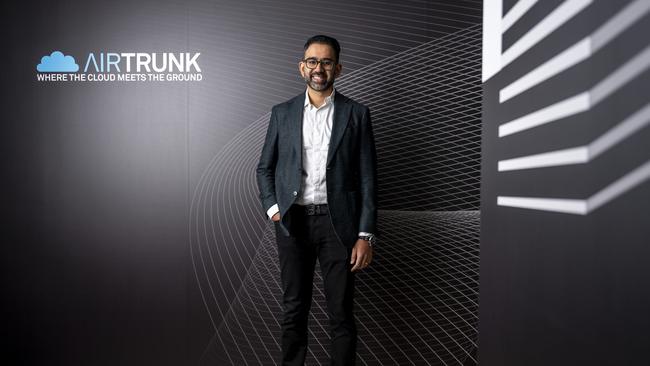
Business
Don't miss out on the headlines from Business. Followed categories will be added to My News.
The 2025 federal election is a chance to catapult Australia towards the front of the global artificial intelligence race and help secure its next wave of wealth, according to the country’s most valuable group of data centres.
AirTrunk — which US private equity behemoth Blackstone acquired for $24bn last year — believes Australia can become a world leader in AI, agreeing with one of the world’s most powerful tech bosses, Microsoft chief executive Satya Nadella.
The growing optimism comes despite Federal Treasurer Jim Chalmers not mentioning AI in the federal budget papers, although he has said it will be one of the many factors needed to turbocharge the economy.
AirTrunk chief financial officer and chief commercial officer, Prashant Murthy, said there “four key opportunities that will require strong collaboration between government and industry”.
These include streamlining planning and approvals to improve the ‘speed to build’ for new data centres; investing into the development of energy infrastructure including clean energy; supporting greater local manufacturing capacity for high end technology equipment needed to support AI; and developing workforce skills, including in data centres, data science and AI.
“Australia has all the ingredients to be a global AI leader, Mr Murthy said.
“We must harness our advantages to create real opportunity and ensure long term economic prosperity. Australia is in a global race to build the infrastructure, including data centres and clean energy supplies, to enable AI and other digital services that will drive economic growth,” Mr Murthy said.
“AI will create productivity improvements across the whole economy and the development of AI infrastructure can support the energy transition, with data centres as a key offtaker, and help attract investment more broadly.”
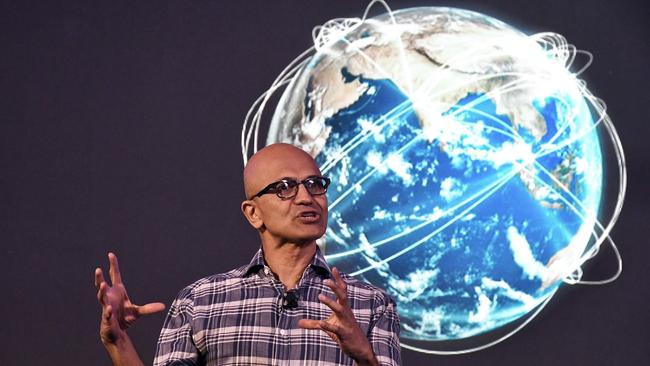
A report by Microsoft and Mandala Partners found Australia could reap about $18.8bn annually in benefits by 2035 as it develops new AI applications and expands its data centres to jump-start flagging productivity.
The report forecast “fast-paced” adoption of AI would also unlock about $115bn in economic value annually by the end of the decade, across various industries from healthcare to financial services. Microsoft counts Commonwealth Bank, Telstra and John Holland among its biggest Australian customers.
Mr Nadella told The Australian: “You cannot not be an optimist in this industry” and that China’s low-cost artificial intelligence model DeepSeek had opened up the AI race, giving countries outside the US a chance to vie for leadership in aspects of AI technology.
“We should not take too much for granted that whatever is the current AI regime is the only real regime going forward. Whether it’s in Australia or whether it is in any country – even in the global south – quite frankly, I think [anyone] has a shot at being able to innovate,” he said.
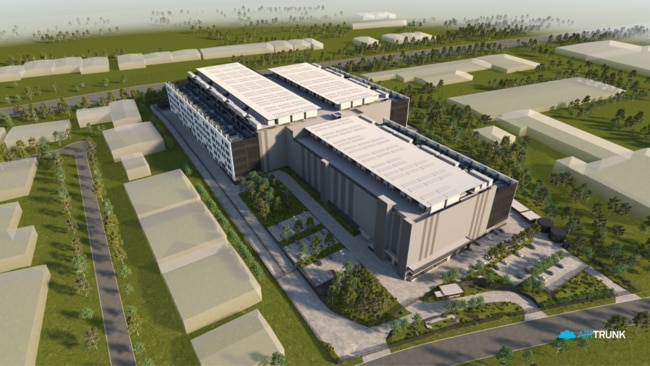
But tech investment in Australia has “barely budged” since the pandemic, languishing at 1.7 per cent of GDP, whereas across the OECD, R&D investment is expected to rise to 2 per cent of GDP in the next 10 years.
Tech Council of Australia chief executive Damian Kassabgi said while Australians were early adopters of technology on a personal level, businesses were more cautious. He called on political leaders to inspire more Australians to take entrepreneurial leaps and back research and development to help turnaround the country’s flagging fortunes.
“Traditional corporate Australia has not taken the same risk taking approach that we’ve seen come out of Silicon Valley and some of the innovative companies that have come out of Australia,” Mr Kassabgi said.
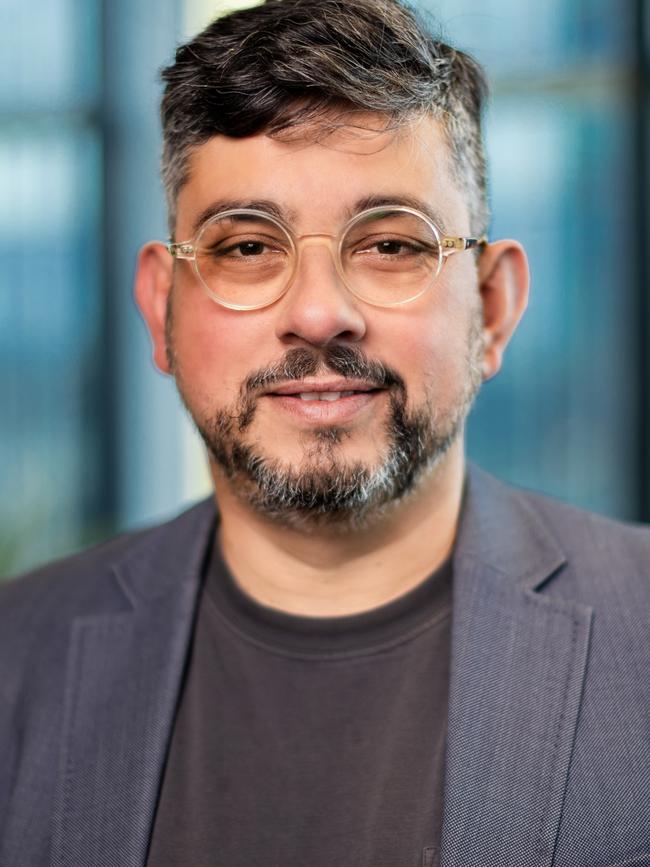
“The focus for innovative companies is on reinvestment. Is on innovation. It is about having a business that is global and has global thinking from day one to compete at a global scale.
“But is not culturally embedded in the way corporate Australia has invested and focused on profits and focused on imputation dividends and shareholder dividends versus thinking about value from a stock market perspective. So from our perspective, we think there needs to be a huge, not only psychological shift, but incentive shift in relation to how business is investing, not just in its own R and D, but uptake of technology – and from our perspective, this goes to the very heart of the GDP numbers.”
Matt Comyn — chief executive of Australia’s biggest ASX-listed company, Commonwealth Bank — has opened a tech hub in Seattle to bolster the bank’s AI capability.
Asked if it was a concern the government hadn’t mentioned AI in the budget and what was needed to make Australia a smarter nation — replicating some degree of success the west coast of America has achieved — Mr Comyn said: “that’s a big question”.
“I think a more optimal time to talk about that might be sort of post election,” he said.
“But, I do think that there are things in the US that are hard to replicate in Australia, some things in the US you might not want to replicate in Australia. But you try to take the best out of it.
“Obviously skills, capability are really important. I think private sector investment is going to be something. And of course, we look to see government policy and where the investments they are making.
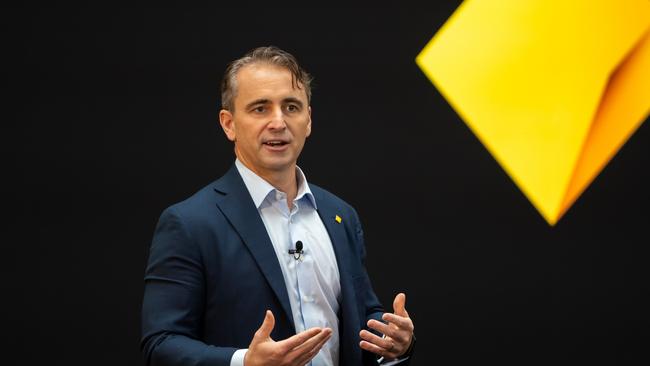
But, Mr Comyn said he wasn’t waiting for the government to launch incentives to accelerate technological adoption in Australia.
“I’s very important for us strategically to be investing in this area, and I’ve no doubt that there’s a number of sectors in Australia that are very focused on this.
“I do think it would be a worthwhile pursuit to continue to grow the capability and technology industry in Australia. I mean, that’s one of the reasons why we’re here (in Seattle). This is like a much larger talent density in some of these areas, particularly in and around San Francisco and Seattle, but Australia obviously does really well in some areas of tech as well, and have developed some really successful companies on a global scale.
“So I think that’s an important strategic priority for the country. And obviously, if there’s anything that we can contribute more broadly to that policy agenda, then we’d be very happy to do so.”
Originally published as Election is Australia’s chance to get rich from AI and become a ‘global leader’



